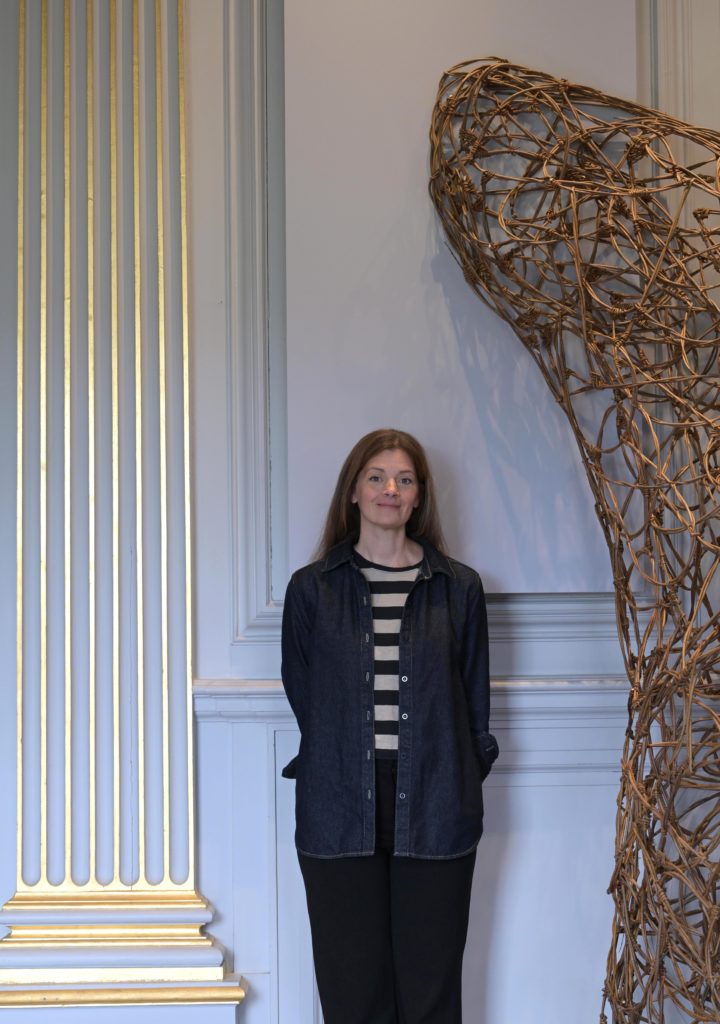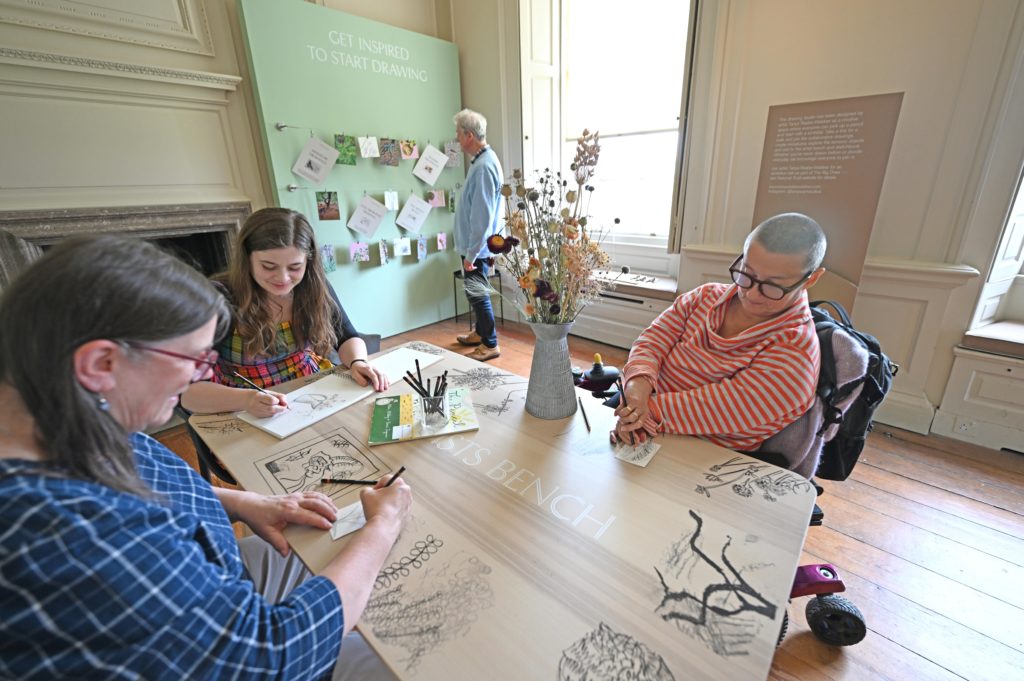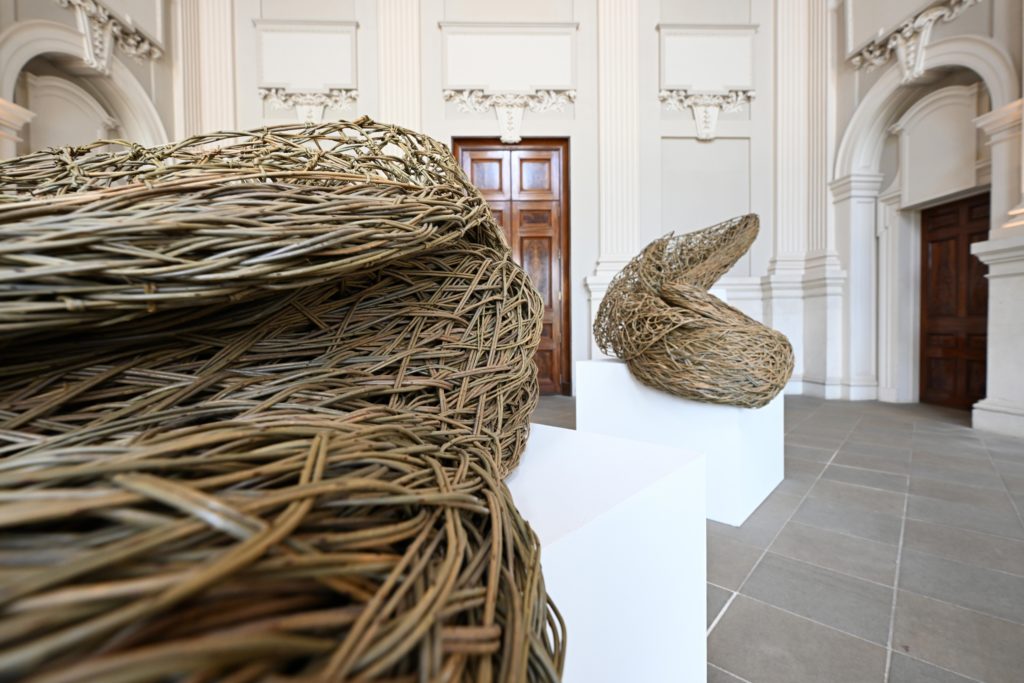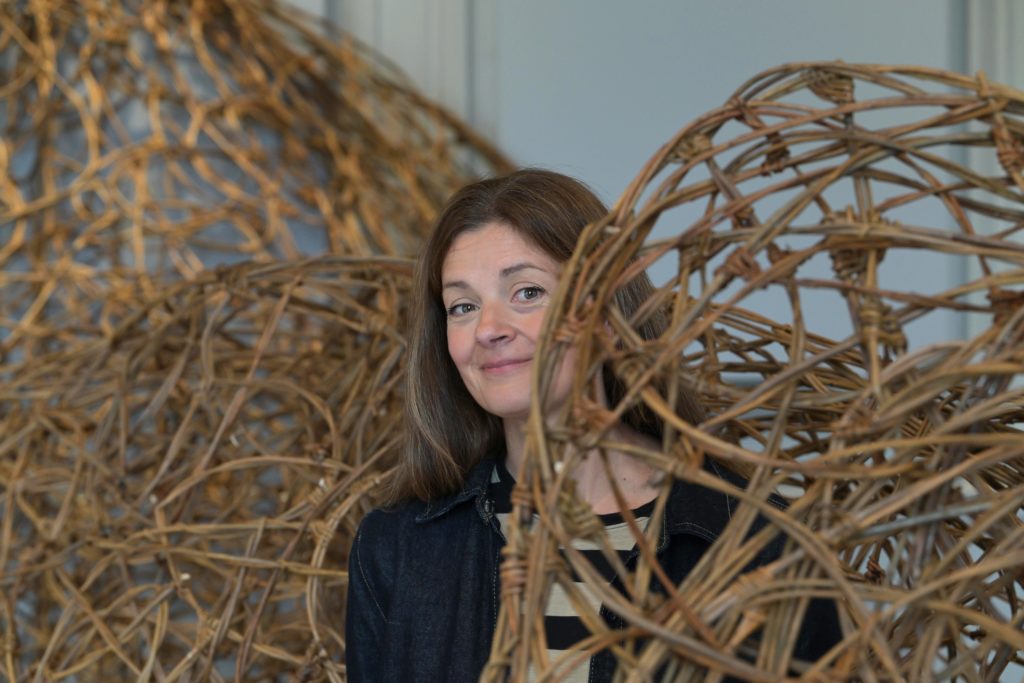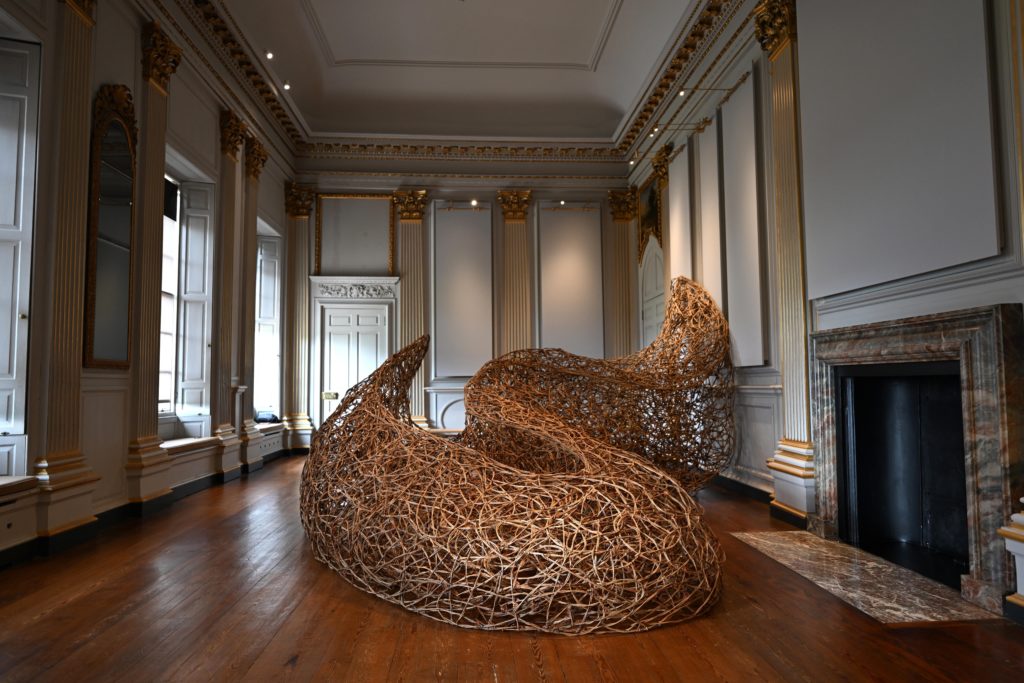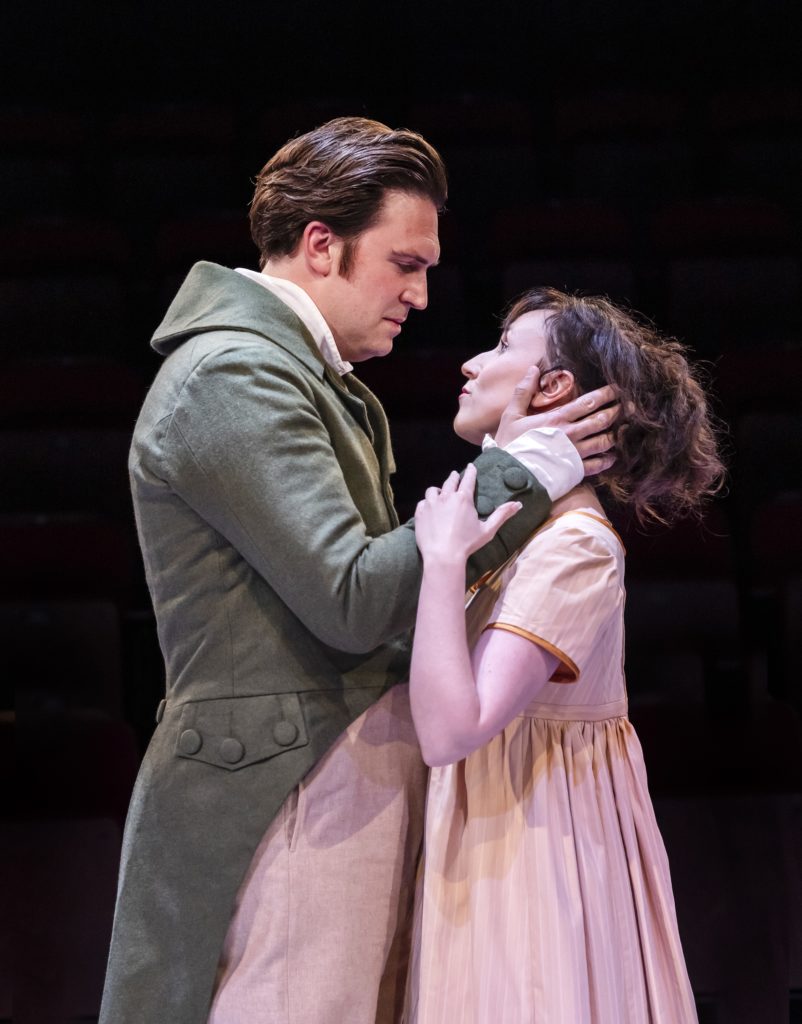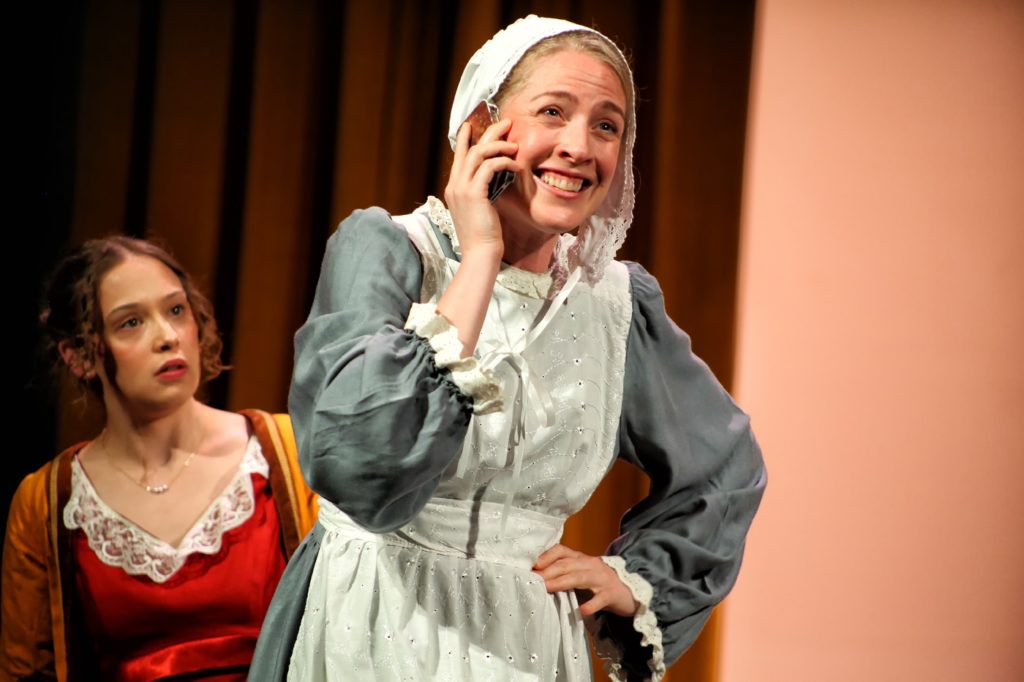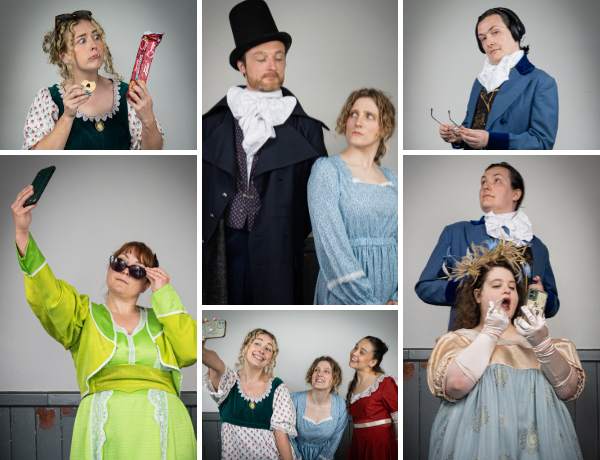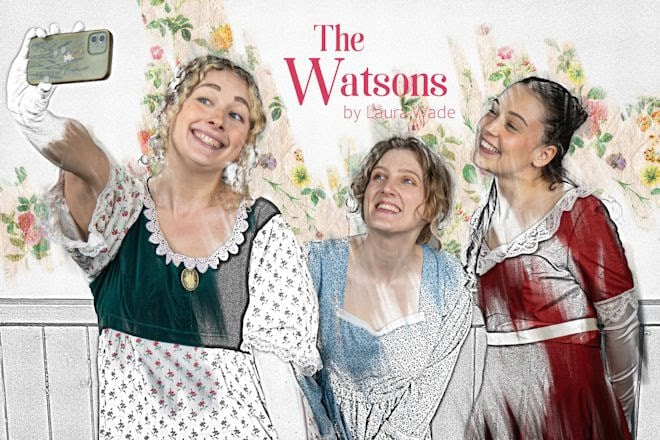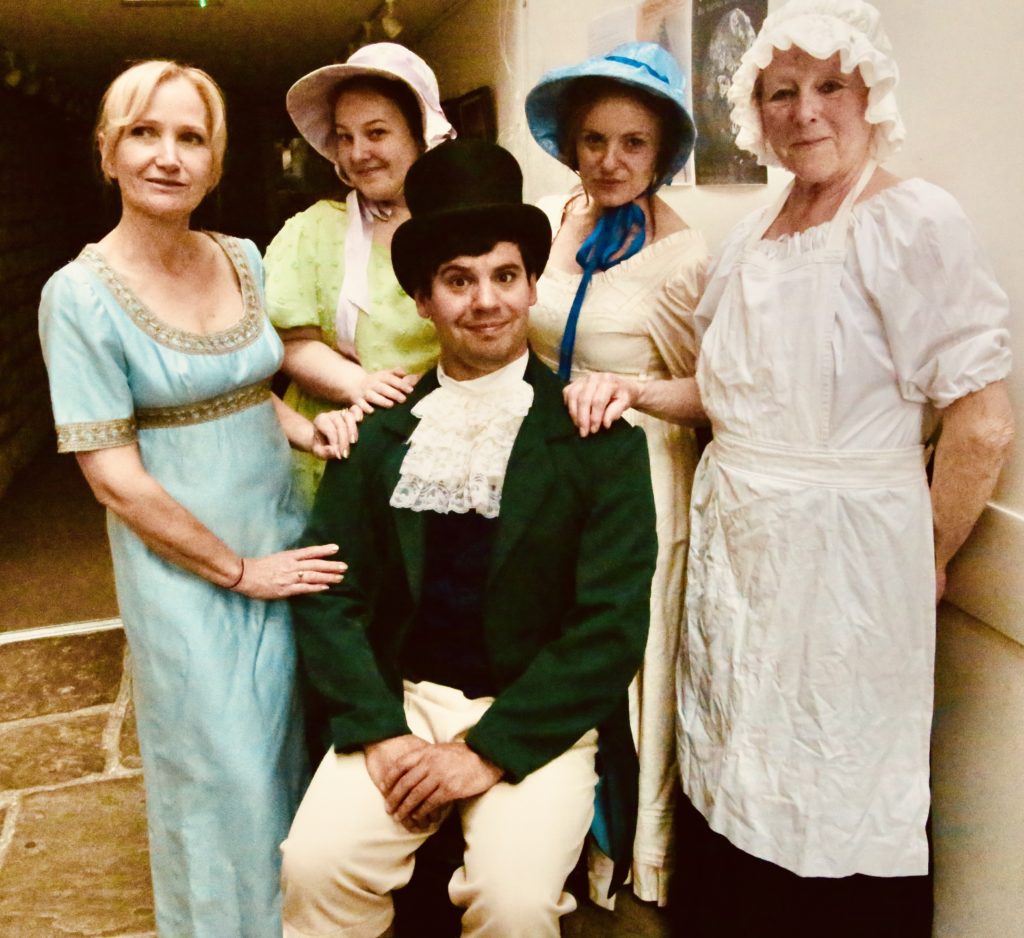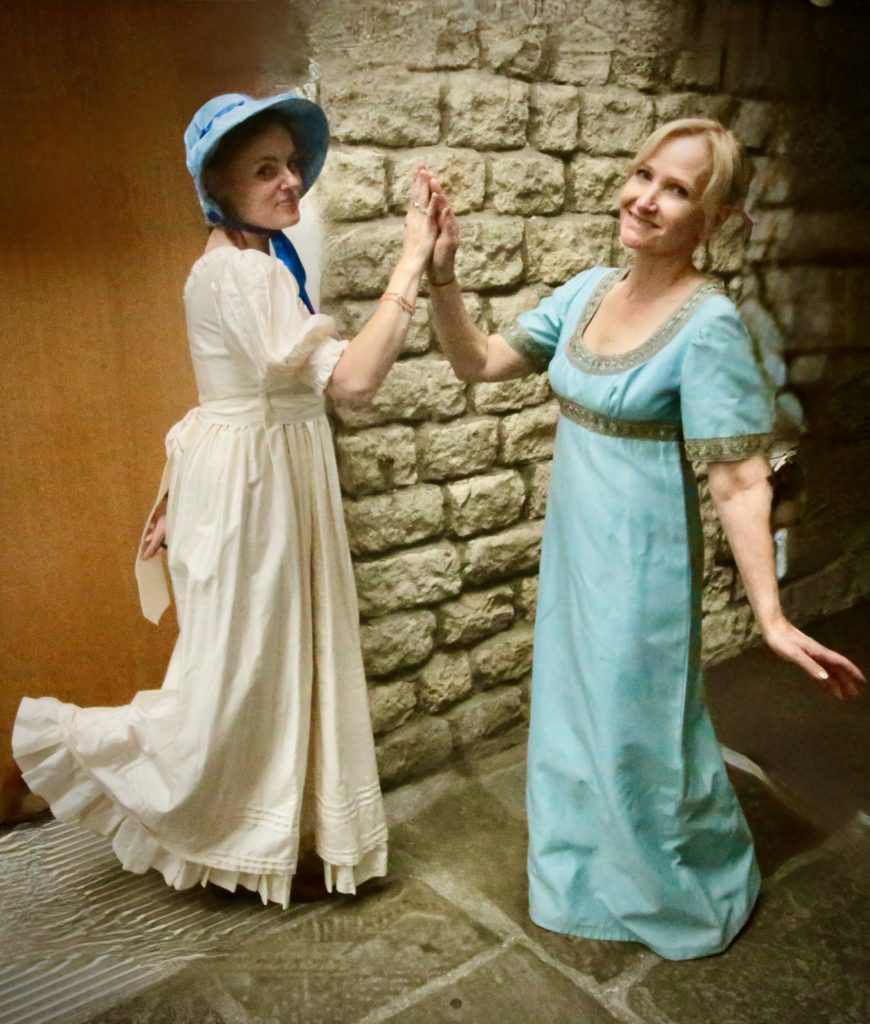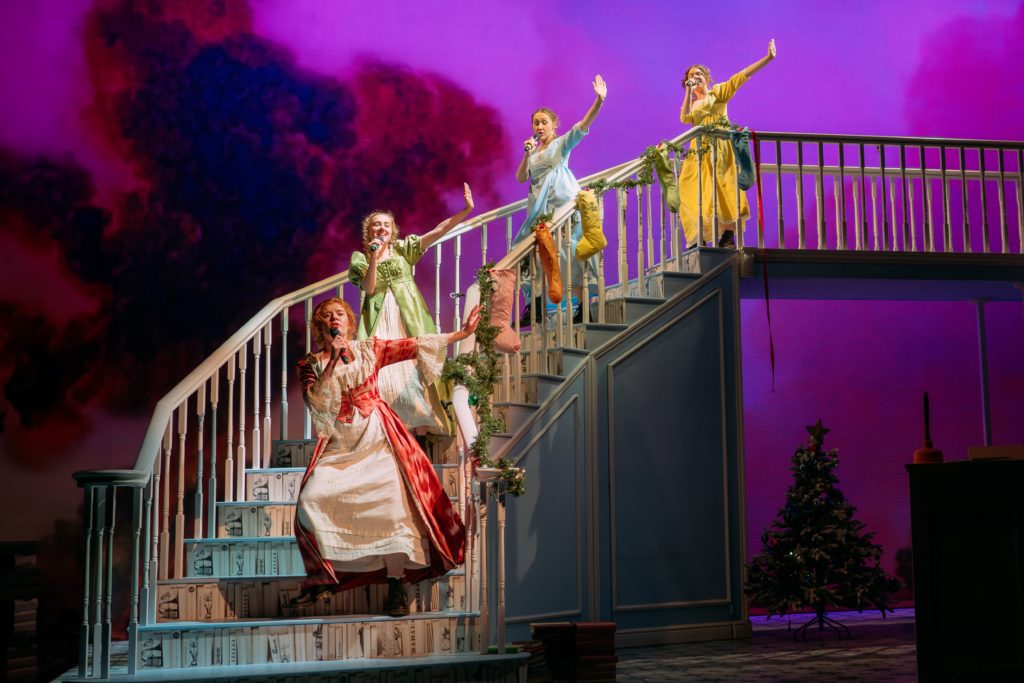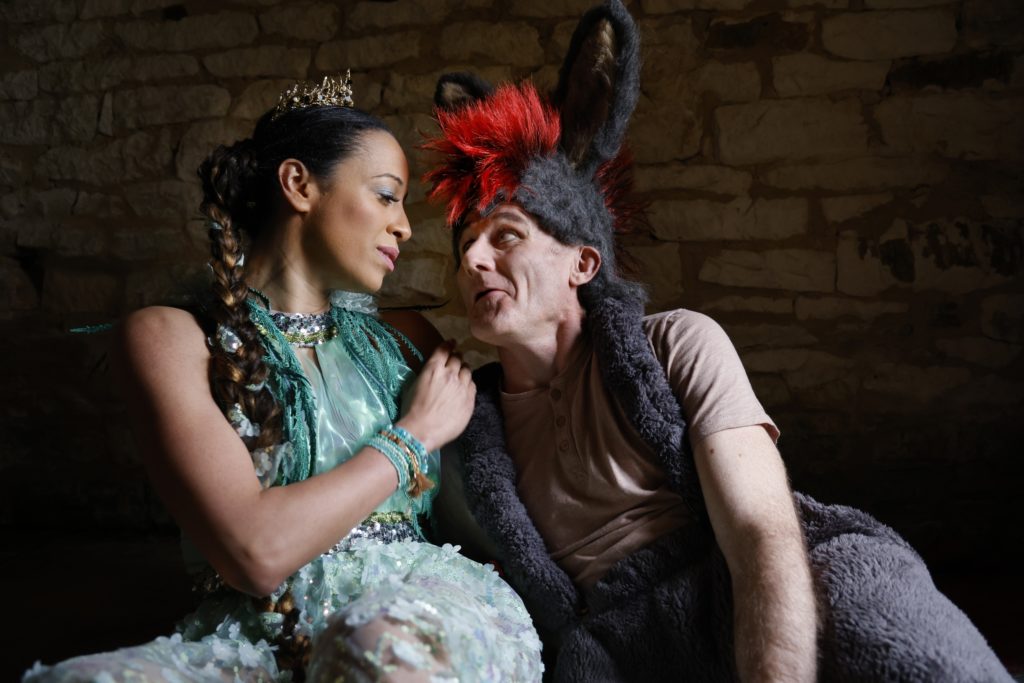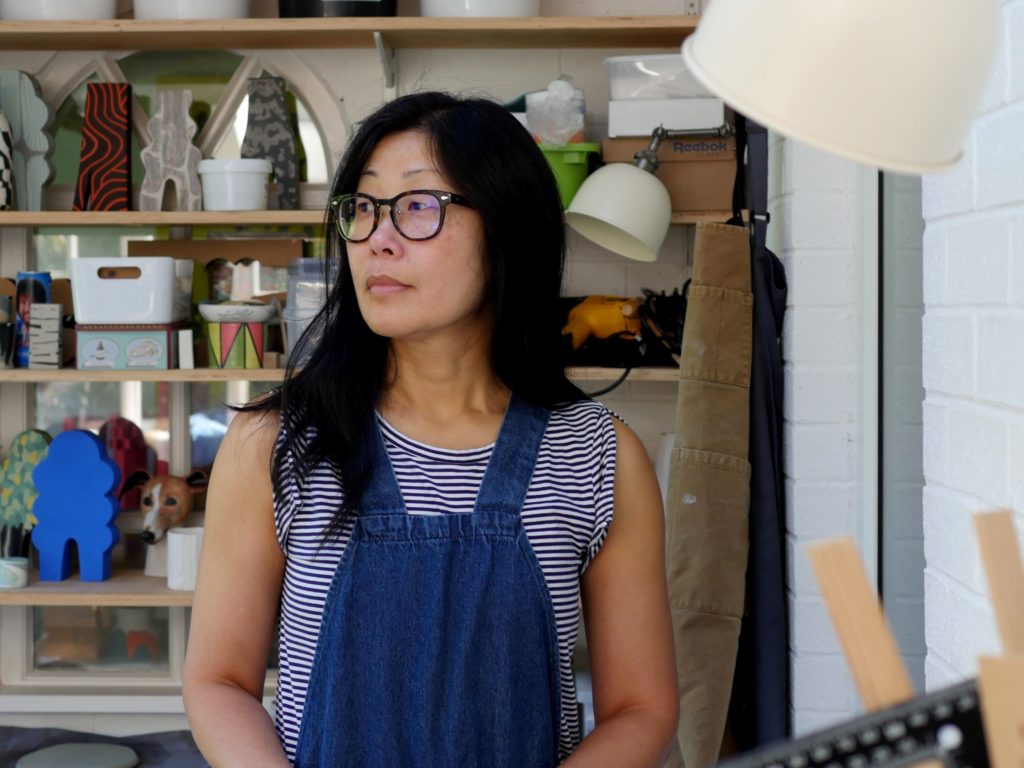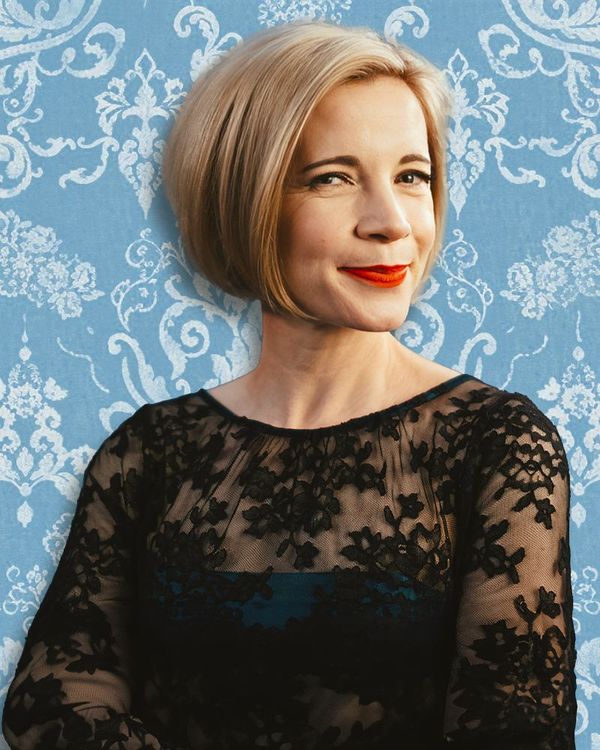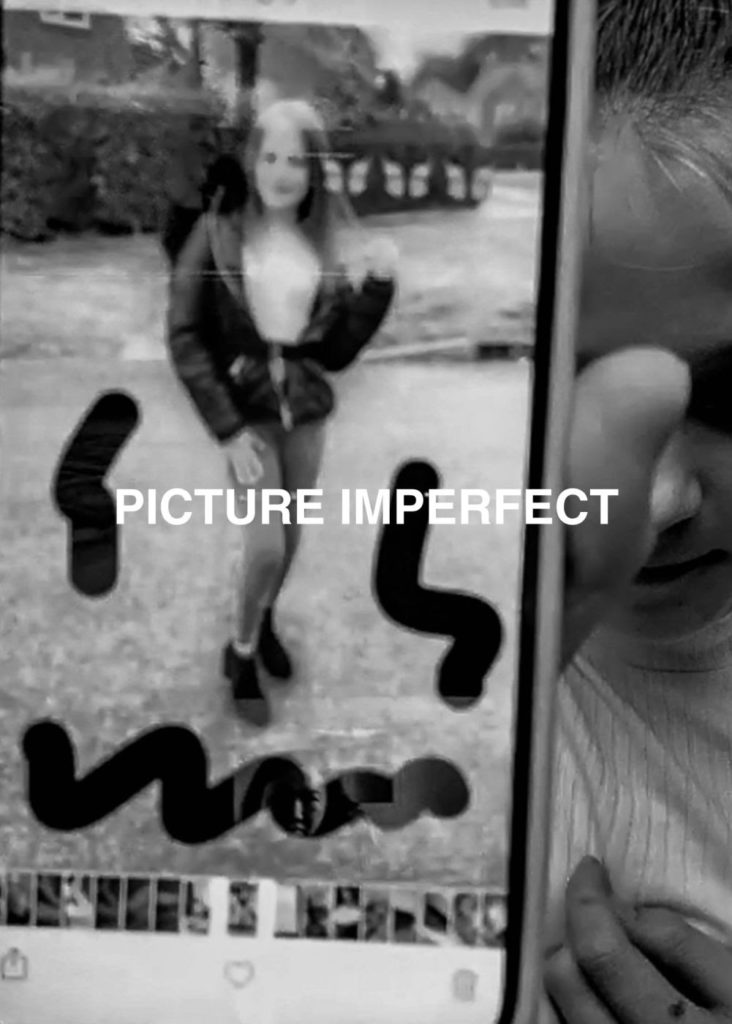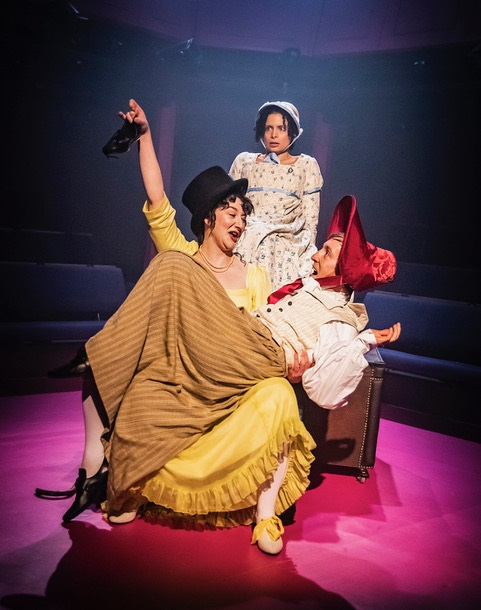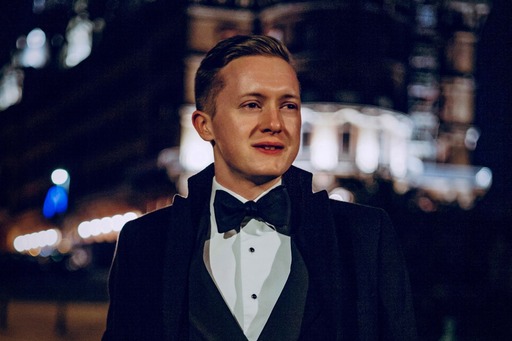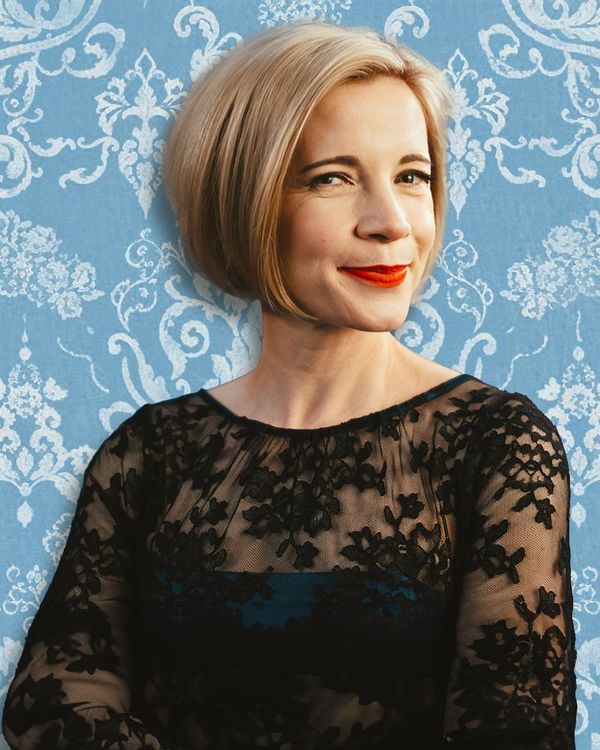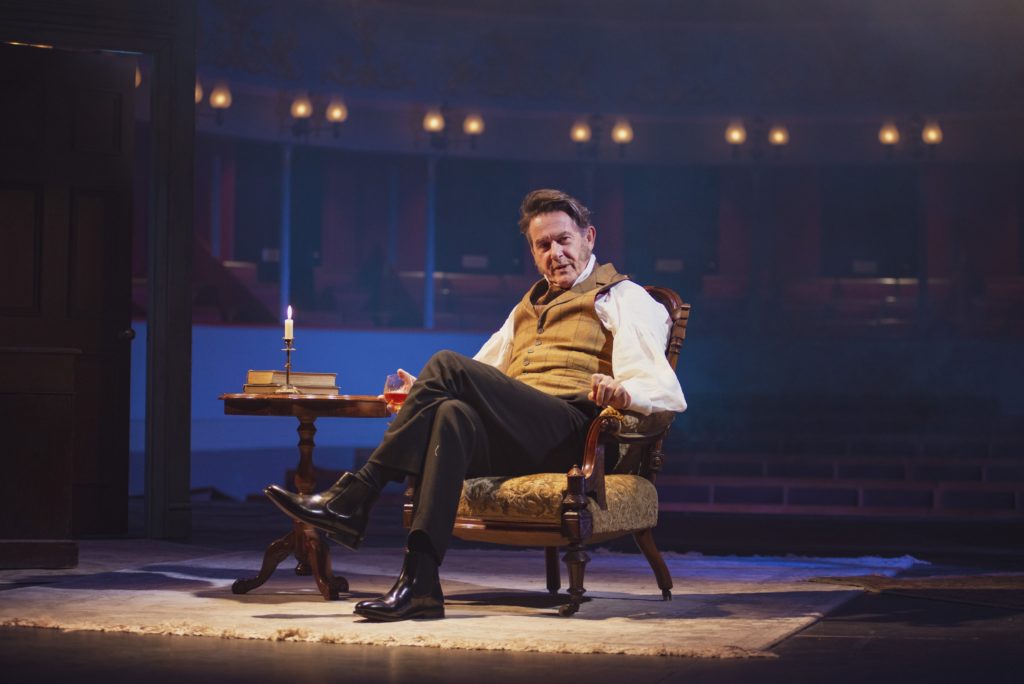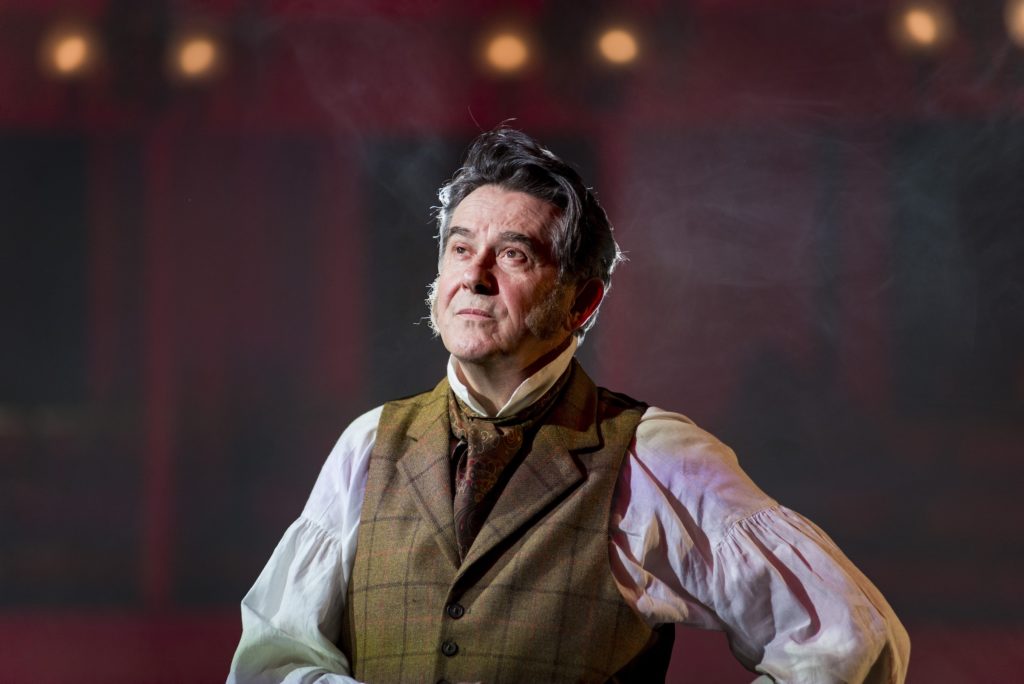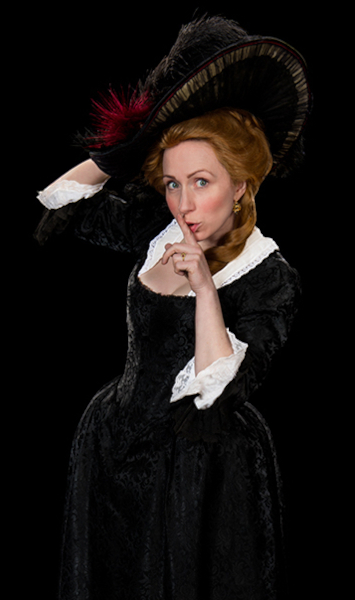
DYAD Productions sweep into York Theatre Royal Studio with Rebecca Vaughan’s new solo comedy account of Lady Susan, Jane Austen’s 1794 tale of manipulation and manners, from Thursday to Saturday. Helmsley Arts Centre follows on Sunday.
Directed by Andrew Margerison, multi-role-playing London company regular Vaughan will switch between devil-may-care widow Lady Susan, oppressed, rebellious daughter Frederica, long-suffering sister-in-law Catherine, family matriarch Mrs De Courcy and insouciant best friend Alicia.
At the vanguard of Vaughan’s adaptation of Austen’s wickedly humorous depiction of Georgian society and the women trapped within it – their struggles, desires, temptations and manipulations – is the charming, scheming and witty Lady Susan, taking on society and making it her own, but has “the most accomplished coquette in England” met her match?
Here Rebecca Vaughan and Andrew Margerison discuss Lady Susan, Jane Austen, GK Chesterton and solo shows with CharlesHutchPress.
What attracts you to Austen’s women, as opposed to, say, to the Brontë sisters?
Rebecca: “I do actually love both! And I see Austen and the Brontës as all fabulous, but very different beasts. Austen’s writing is so witty and economical, and her commentary on society is biting and incisive. Her female characters reveal so much about the social mores of the time, and the ways in which women are trapped by society.”
Andrew: “They’re all wonderful and have created incredible work. Certainly in this case, one of the things that really piqued my interest was the comedic element.
“Whilst they’re all using satire in their works, the sharpness of the satire in this particular piece along with the very modern feeling characters was a match made in heaven from a creative standpoint, to really gift us some very interesting, engaging and mostly unknown material.”
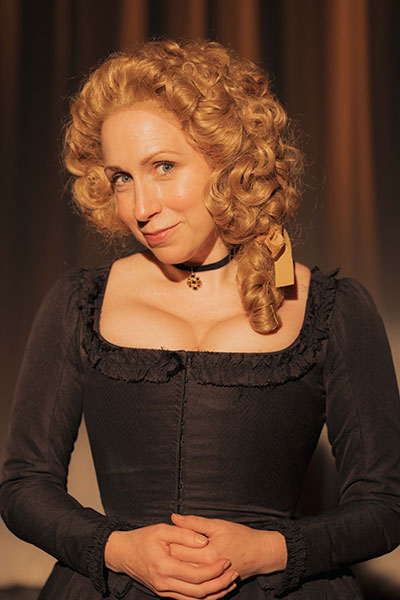
“Creating a far darker character in Susan reveals so much about the ways in which Georgian society treats widows, even higher up in society.” says Rebecca Vaughan. Picture: Seamus Flanagan
GK Chesterton said of Lady Susan: “I for one would have willingly left Lady Susan in the wastepaper basket.” Why is Chesterton wrong and where would you place Lady Susan?
Rebecca: “Chesterton is so wrong! Lady Susan is of course a very different piece to any of Austen’s other work – but that’s what makes it so fascinating. The space between the letters and the epistolary nature of the work only add to the humour.
“The dissonance between Lady Susan’s machinations and Catherine’s increasing frustrations are hilarious (and this is certainly borne out with the audiences reactions to our show).
“Also, creating a far darker character in Susan reveals so much about the ways in which Georgian society treats widows, even higher up in society, especially those without a son to inherit property. Whilst Lady Susan was created by a younger Austen, there’s a freshness to it which is so apparent, and which audiences really respond to.”
Andrew: “Chesterton is wrong simply because it would seem that he can’t see the characters for the wonderful cross-section of society that they represent. They’re naive, cutting, foolish, pompous, entitled, maligned, ignored, raised up and mistreated. For all those reasons they belong on your bookshelf and on your stages!”
On the other hand, Margaret Drabble said of Lady Susan, Austen’s first full-length novel: “In no other novel is Jane Austen so evidently writing at a turning-point in the morals of the nation. The machinations of the wicked, witty and beautiful heroine clearly identify it with the outspoken and ribald 18th century.” Discuss…
Rebecca: “Absolutely! It’s thought that she finished the novel in 1794, and it certainly feels more of a Georgian piece than a Regency piece. There are more references to sexuality (and sensuality) and Lady Susan herself is outspoken and powerful in a way even Lizzie Bennet isn’t [in Pride And Prejudice].
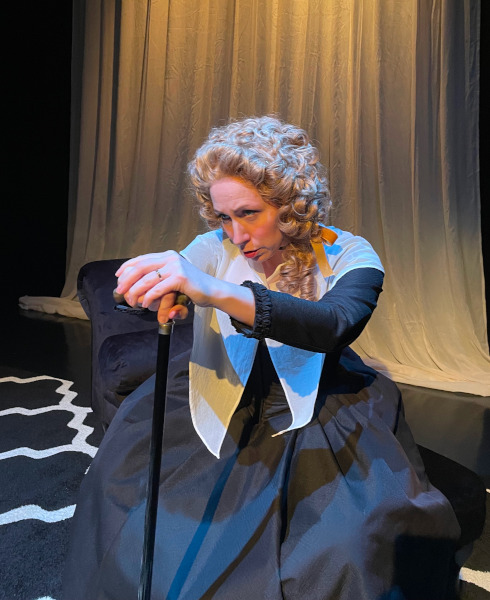
Rebecca Vaughan in multi-role-playing mode in Austen’s Women: Lady Susan. Picture: Seamus Flanagan
“She’s aware of herself and those around her and has the maturity to understand the situation she’s in, and thus try to use everything in her armoury to survive. It’s the 18th century nature of the novel we were drawn to – and really wanted to bring this into our adaptation.”
Andrew: “I think that’s an absolutely accurate insight into the character of Lady Susan. As we know, Jane Austen was fascinated by her own times and had the most incredible eye making her the consummate commentator on society. Her ability to transform what she observed into narrative and character are hugely impressive.”
Austen’s writing style is magniloquent/grandiloquent/detailed. How do you transfer this into action on stage?
Rebecca: “It’s the absolutely detailed nature of her language which makes it so easy to transfer to the stage. Austen is so clever at writing dialogue which fits perfectly into the mouths of each character, and when spoken aloud, reveals so much of what that character is about.
“Whether it’s overblown, or languid, or almost tripping over itself, she’s an absolute genius at fitting the language to the character – which makes it perfect for theatre.”
Andrew: “We make that transfer with a lot of time in the rehearsal room! We start from our adaptation and no matter what’s on the page, nothing is sacred. More often than not, it’s very clear what works when one lifts it off the page and breathes it into being.
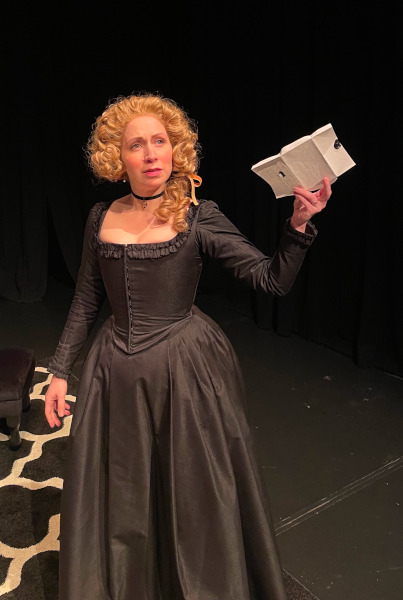
“Austen is so clever at writing dialogue which fits perfectly into the mouths of each character,” says Rebecca Vaughan. Picture: Seamus Flanagan
“There’s a natural simpatico with the moment presented on stage whereby one recognises if it sounds ‘right’ or not. Which isn’t to say you can’t go backwards and forwards with ideas and alternatives, but quality will out!”
What are the strengths of solo shows that Dyad Productions stages so consistently? Cost effective to tour, for sure, but it must be more than that?
Rebecca: “We’re fascinated about going back to the origins of theatre, and the storytelling nature of witting in a dark room and hearing a story told. By the breaking of the fourth wall, which forms such a part of our solo work, we can create a space where the audience is absolutely part of the action, and not just passively watching it.”
Andrew: “I’d suggest that we all go to the theatre to experience something. A connection of some variety with the work being shown. Breaking the fourth wall, speaking directly to the audience is a fantastic method in which to connect. The audience from the very start becomes party to the piece, an integral player and that connection cannot be undersold in its importance.”
Does it ever become lonely on stage?
Rebecca: “I do absolutely love sharing a stage with other actors – and it’s certainly easier being on stage with loads of others! – but there’s nothing like sharing the story each night directly with the audience. The audiences bring such variety and it’s a real honour to be able to share these great stories. So no, no loneliness at all!”

Hospital drama incoming: Dyad Productions will be teaming up with Company Gavin Robinson to create General Medical Emergency Ward 10 next spring
What’s coming next for Dyad Productions?
Rebecca and Andrew: “We’re touring three other shows this autumn: That Knave, Raleigh (about Elizabeth I’s dandy warrior, Sir Walter Raleigh) in October and November across the UK and Northern Ireland, then two Christmas shows, Christmas Gothic and A Christmas Carol in November and December.
“Then, next spring, we’re collaborating with Company Gavin Robertson to devise and create a very different piece, where there’ll be three of us on stage!
“To give you an idea of it: imagine a pastiche and parody of every hospital soap opera/drama you can think of, called simply General Medical Emergency Ward 10! It’s going to be lots of silly fun!”
Dyad Productions in Lady Susan, York Theatre Royal Studio, tonight and tomorrow, 7.45pm; Saturday, 2pm. Also Helmsley Arts Centre, Sunday, 7.30pm. Box office: York, 01904 623568 or yorktheatreroyal.co.uk; Helmsley, 01439 771700 or nhelmsleyarts.co.uk.
Dyad Productions: the back story
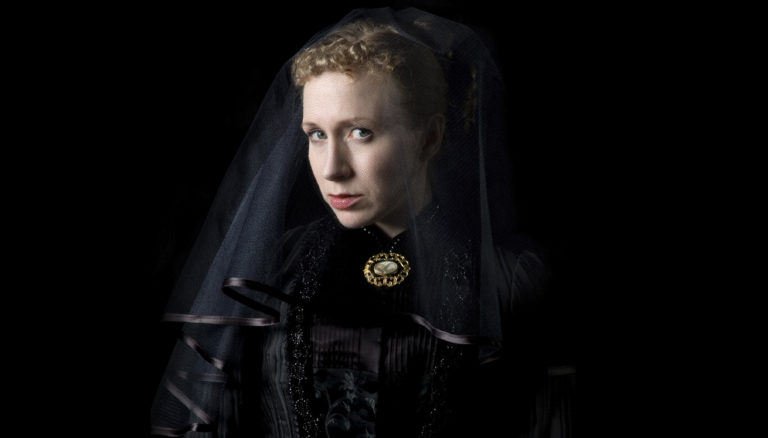
“In the dark between life and death, a haunted woman tells strange and terrifying tales”: Rebecca Vaughan in Female Gothic in 2021
THIS year marks Dyad Productions’ 16th year of touring in the UK, Ireland, Australia, New Zealand and the USA.
“Specialising in high-quality literary adaptations as well as original work, we’re always thrilled to bring something fresh and new to often believed well-known works,” states the London company.
Producer, actor and writer Rebecca Vaughan has adapted and performed in Austen’s Women, A Room Of One’s Own, Orlando, Jane Eyre: An Autobiography, I, Elizabeth, Dalloway, Christmas Gothic, and Female Gothic.
Andrew Margerison has directed Dyad’s A Christmas Carol and Frantic Assembly’s Macbeth and Fatherland.
Lady Susan was created in collaboration with The Old Town Hall, Hemel Hempstead, where Dyad Productions are the resident company.

